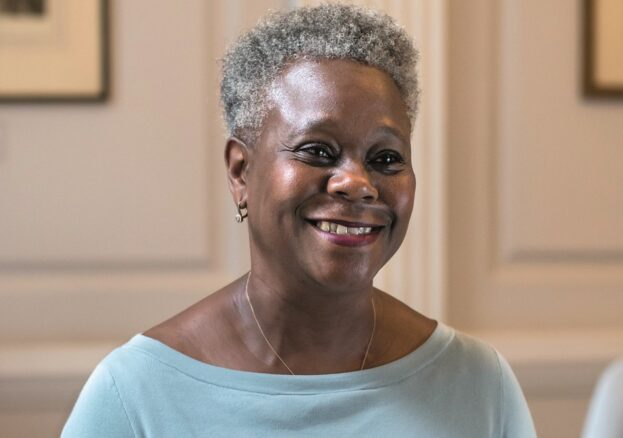|
Many young women arrived in the UK from the Caribbean with a dream to be a nurse. It was a dream that many had to wait a while to realise, for a reason most did not expect. Racism.
Quite a few of these young hopefuls got jobs in hospitals, not as nurses, but as "orderlies" as they were called then. These were the people who cleaned the hospitals. Disappointment may have been their immediate emotion but all used the opportunity to learn about hospital life, and the reality of life in the UK through the reactions and reluctance of many patients and visitors to seeing Black hospital workers. After many applications and requests for nurse training, the door was opened for some, but only as State Enrolled Nurses – a second-tier position below State Registered Nurses. Many young nurses worked their way up enhancing their employability and chances for promotion, but they were still blocked by racism most of the time. Their resilience, courage and determination sustained them. Roll on twenty years and in 1964, Daphne Steele was appointed the first Black Matron at a hospital in Ilkley, Yorkshire. Another 20 years on and another young woman started her training in Whitechapel, London. Her name – Donna Kinnair. Kinnair started her academic life pursuing a degree in mathematics, but took to nursing with enthusiasm and vigour. She widened her healthcare experience by working with HIV patients, and by working in an intensive care hospital setting and as a Health Visitor in the community. Kinnair was following in the footsteps of the pioneering Windrush Generation who became nurses and showed that their professional competence could extend outside of the hospital and upwards towards leadership. Kinnair didn’t stop there though. She continued her academic and professional development with a Masters’ Degree in Medical Law and Ethics and focused on child protection work, becoming an expert adviser. A Windrush Generation descendant, Kinnair was making a hugely valuable contribution to Britain in greater ways than those who came to England to be nurses could have hoped for. She was showing what could have been achieved if racism hadn’t been a hurdle for Black nurses of the Windrush Generation. Kinnair held a number of senior positions in both the healthcare and education sectors, underlining her talent, passion, belief and years of hard work. Her roles included being Strategic Commissioner for Children’s Services, Clinical Director of Emergency Medicine, and a Director of Commissioning. Kinnair was appointed Dame Commander of the Order of the British Empire in the Queen’s Birthday Honours List in 2008 – in recognition of her achievements and contribution to the UK. As an acknowledged leader and influencer, Kinnair was a member of the Prime Minister’s Commission in 2010, giving advice on nursing and midwifery. Being invited to teach medical law, ethics, and child protection in New Zealand, Russia and Kenya, as well as throughout the UK, confirmed her expert status and her skill of inspiring others. Kinnair soon rose up the ranks from Head of Nursing at the Royal College of Nursing (RCN) in 2015, to Director for Nursing, Policy and Practice in 2016. Then, in August 2018, she was appointed acting Chief Executive and General Secretary of RCN, before the permanent position was confirmed in April 2019. Kinnair’s professionalism and commitment to innovation and a quality service has had a tremendous impact already. 2020 has been a year in which her skills have been tested, as have those of the Government and others helping the country to deal with major and far-reaching issues. From the Covid-19 pandemic and its disproportionate impact on Black and Asian communities, to the urgent need for equality and inclusiveness in all areas of society – highlighted by Black Lives Matter protests around the world. Kinnair acknowledged these issues and how they impacted on Black nurses when she marked Windrush Day on 22 June 2020. “While it would be nice to think that the prejudices and barriers faced by the Windrush nurses were firmly established as a thing of the past, the reality is that change is painfully slow. The results of the Workforce Race Equality Standard tell us that there is still much more work to be done to create sustainable change in organisations. Nurses still tell us about their experiences of racism and at RCN Congress this year we learned much about the importance of understanding the impact of race on health….” In 2020, protecting nurses from Covid-19 has been a difficult challenge, as has been identifying why Black and Asian people have succumbed disproportionately to the virus, compared to white people. Kinnair has shown leadership and is not afraid to be bold when it comes to ensuring the Government takes responsibility and responds to demands for improving the safety of the frontline workers she is responsible for. At the start of the UK pandemic, nursing staff were expected to continue caring for Covid-19 patients without protective personal equipment (PPE) such as masks, gloves and aprons. The reality of the PPE scandal is that over 650 health and social care workers have now died of Covid-19 to date. 2020 may continue to be a difficult year for all, but Kinnair has set out the RCN’s demands to Government and health service leaders. Demands that will protect nurses and patients. Demands that will help care for people through the pandemic, while providing a way forward for a full re-opening of the other healthcare services needed. Demands that will train and equip nurses to meet a nation’s healthcare needs, at one of the most challenging times in our history. Kinnair believes “Nurses, in all settings and sectors across health and social care, deserve to know that their safety and wellbeing is paramount to the UK Government, devolved adminisibbean Nursestrations and health agencies.” More than ever, knowing this is particularly important in 2020, and a definite priority for Kinnair. In 2020, Kinnair was named in the Powerlist, a list of 100 most influential Britons of African and African Caribbean descent. The Windrush Generation and their descendants, especially those who have been a part of the NHS journey and its development as a world-class service, have saluted Kinnair for her achievements and invaluable contribution. In turn, celebrating the 72 year anniversary of the NHS in July, Kinnair acknowledged the invaluable and lasting contribution of the Windrush Generation who became nurses. Professor Dame Donna Kinnair DBE was the toast of anniversary events 72 years after many of those first hopefuls made their way into nursing despite the many challenges they faced. Starting a long journey that would see The Windrush Generation and their descendants making an incredible contribution to the NHS and the health and wellbeing of the nation. Source : Black History Magazine 2020 |
Archives
May 2022
Categories |


 RSS Feed
RSS Feed